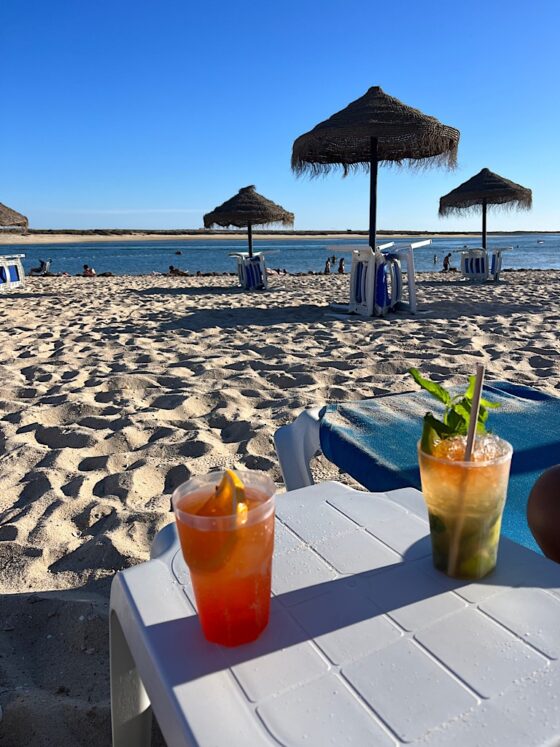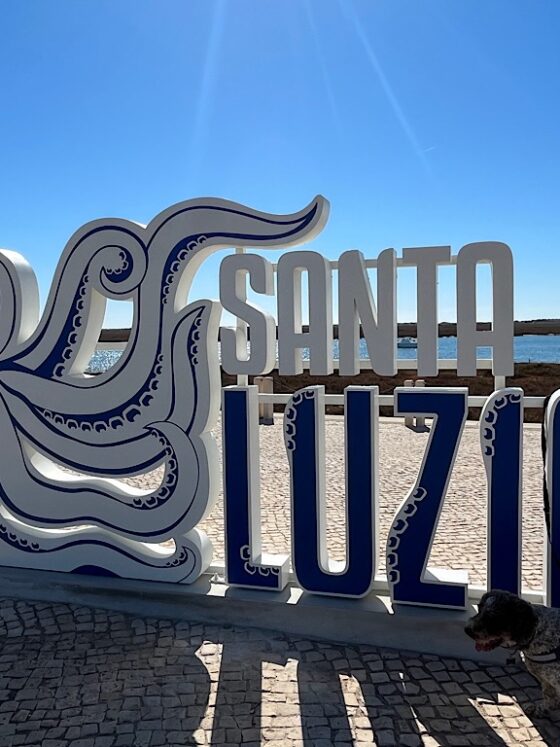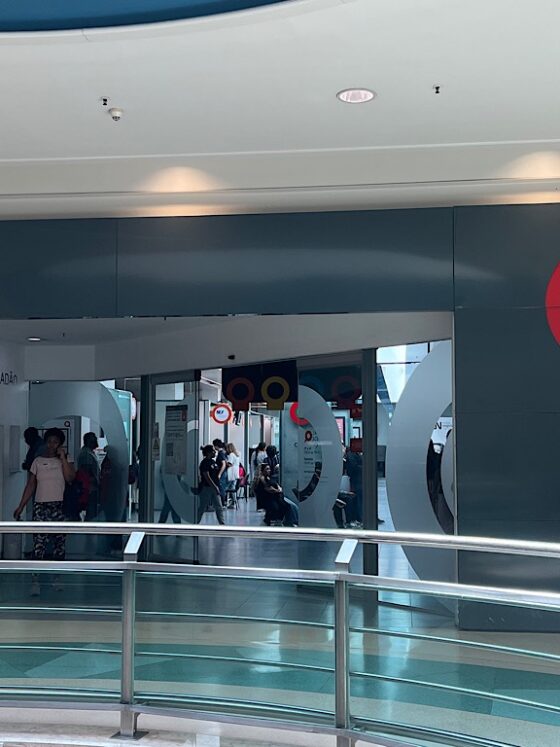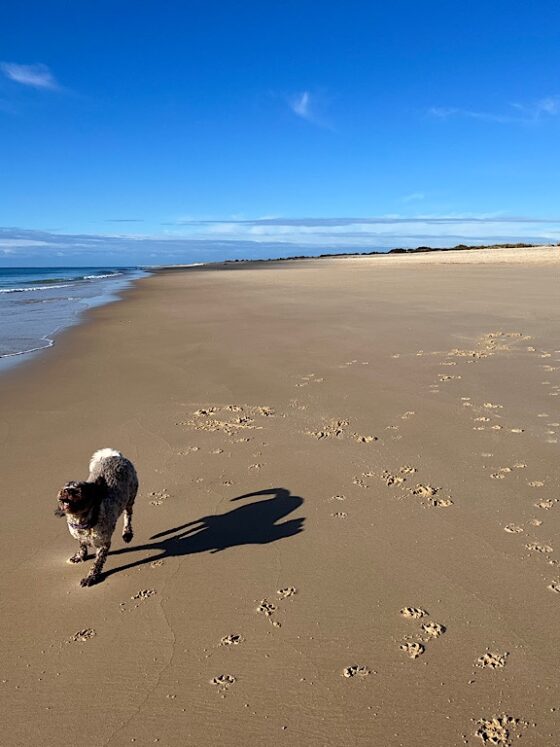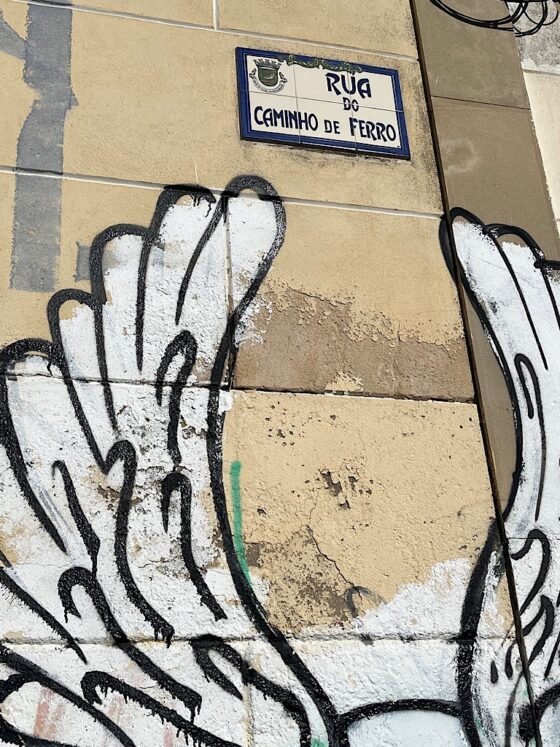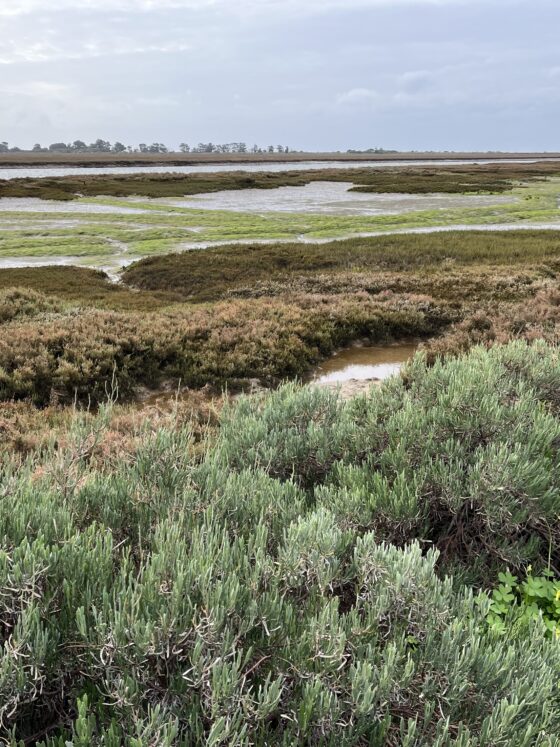Since I arrived on 9 February, two months ago, I’ve treated my stay in Santa Luzia like an extended holiday. In my defence, though, I been distracted by five separate visits from friends and Jack, plus an eight-day round trip to Rome to sell my house.
One all-important thing I have succeeded in doing after a bit of pestering my landlord is getting a key to my mailbox and putting my name on it.
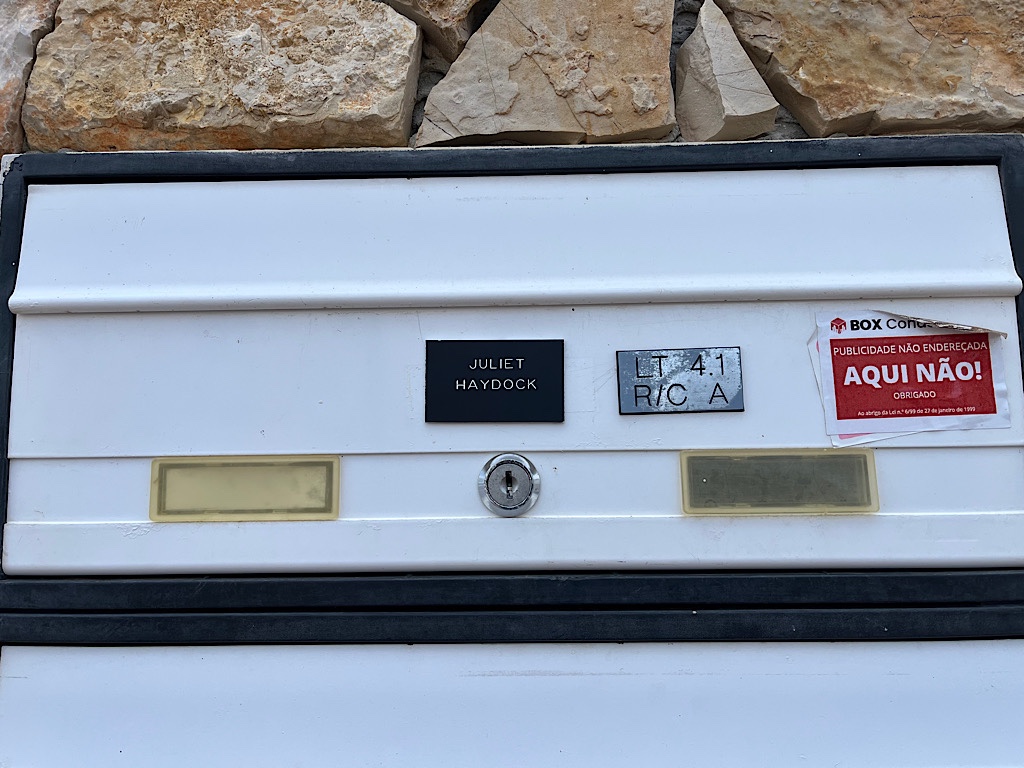
Suddenly I realised that I need to get some paperwork together for my impending interview with the SEF (border guard) in May, when my resident’s card will hopefully be granted.
It wouldn’t hurt to get a debit card and start using my Portuguese bank account either.
After a frustrating hour or so navigating the clunky Millennium bcp app and website, I realised I needed a proof of address to change my bank account details.
A utility bill was out of the question as I pay my bills directly to the landlord. After a bit of Googling, it seemed that an atestado de residência is an extremely useful proof of address.
You have to apply for it at the local Junta de Freguesia and I was glad to see that we have our very own such municipal office in Santa Luzia.
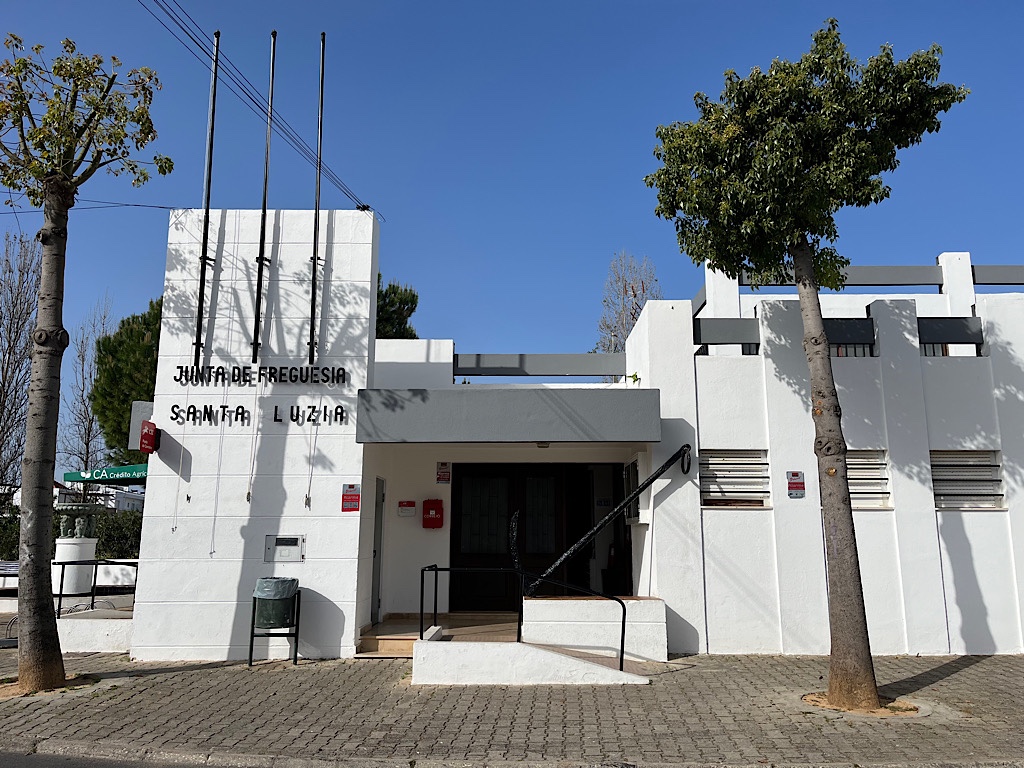
It seemed I’d need my lease contract, my passport and my NIF (tax number), plus signatures and photocopies of citizen cards from two witnesses who live in the same freguesia to vouch for me.
The last seemed a bit of a sticking point, as I don’t know anyone in Santa Luzia well enough to demand copies of their citizen cards, but someone I’d chatted to at the friendly Café em Português Saturday morning meet-up (organised by the East Algarve Magazine International Meet Ups Facebook group) had assured me that the lease contract was enough and I didn’t need witnesses.
It turned out that she was right because I went to the office this morning (Easter Monday – but not a bank holiday in Portugal) and all I needed was my lease contract, NIF and passport. It all took 5 minutes and I have to go back tomorrow for my certificate. I was ecstatic.
Update: I went to pick up my atestado de residência this morning and it was all ready as promised. I just had to pay €6.
When I tried to change my address in the Banking app, it turned out that the atestado de residência wasn’t actually among the permitted proofs of address – but an up-to-date NIF document issued by the tax office (Financas) was fine.
So the next step was to update the address on my NIF. This is the tax number document that I applied for remotely back in the UK, since it was needed for my apartment lease contract. It was provisionally issued under my UK address but now needs changing. Fortunately, it seems the atestado de residência is OK for this purpose.
Once you change the address on your NIF to your Portuguese address, the clock starts ticking to the time you have to file your first tax return. By my reckoning that won’t happen for another year so I’ve plenty of time to sign up for the NHR (non-habitual resident) tax scheme and find a tax representative – which is a subject for another post if I ever manage to understand it myself.
I followed Bordr.com’s instructions for changing the address on my NIF and am waiting for a reply. Once I get the updated NIF, that should be another useful proof of address for updating my bank details as well as extra ammunition for my SEF interview for the resident’s card in May.
Bordr.com is one of several websites that will apply for a NIF on your behalf remotely for a fee. The wonderful Jules from Tavira Long Lets who found me my apartment could also have done it, it turned out. As it was, she opened my bank account for me and made sure my lease contact was kosher for D7 visa purposes.
Armed with a sheath of my new paperwork, I headed for the Health Centre (Centro de Saude), a short cycle ride away, to get my NHS number this afternoon. Another expat at Café em Português had advised me to go to the Health Centre after 5 pm when it’s not busy. We don’t learn much Portuguese at our sessions but a lot of handy info is exchanged.
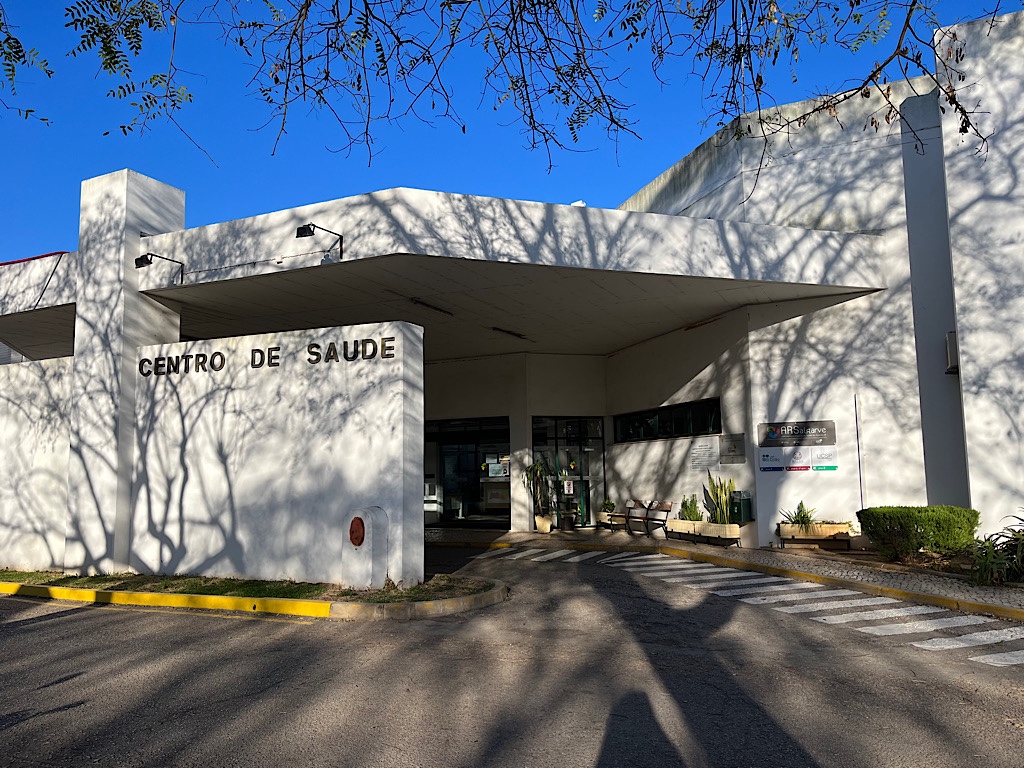
In fact, the advice was sound as the centre was practically deserted when I arrived just before 6 pm.
Inside, everyone was masked up and recoiled slightly to see me without one. No matter, a mask was quickly supplied and a kind person showed me the correct button to press for a number slip showing my turn
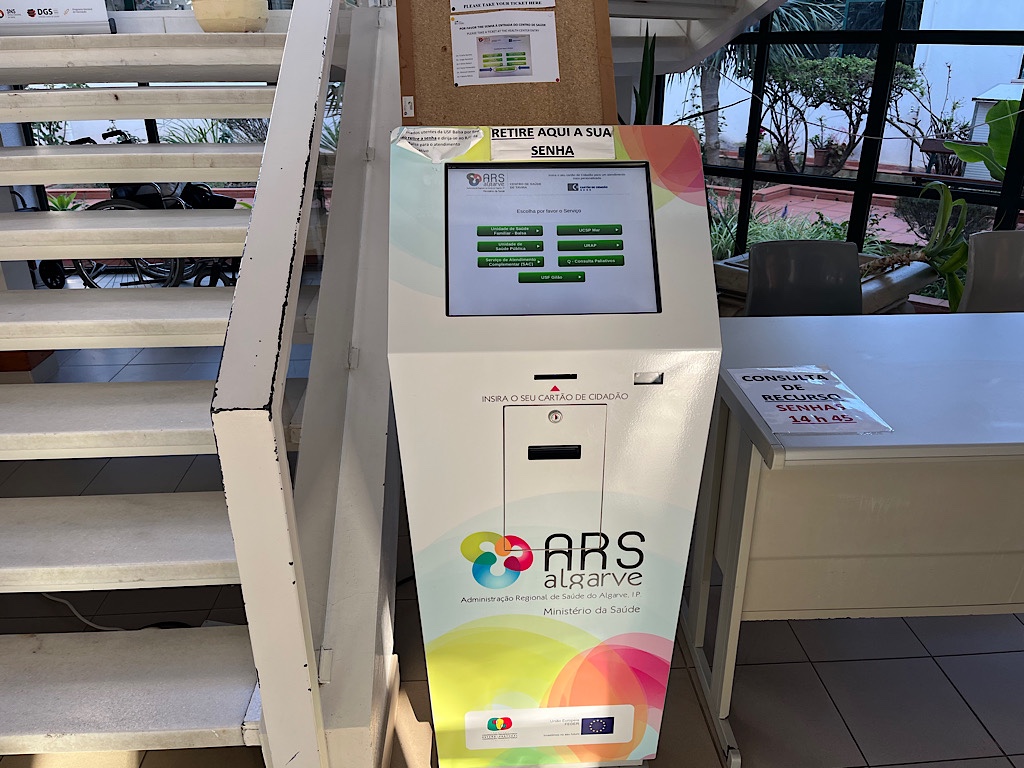
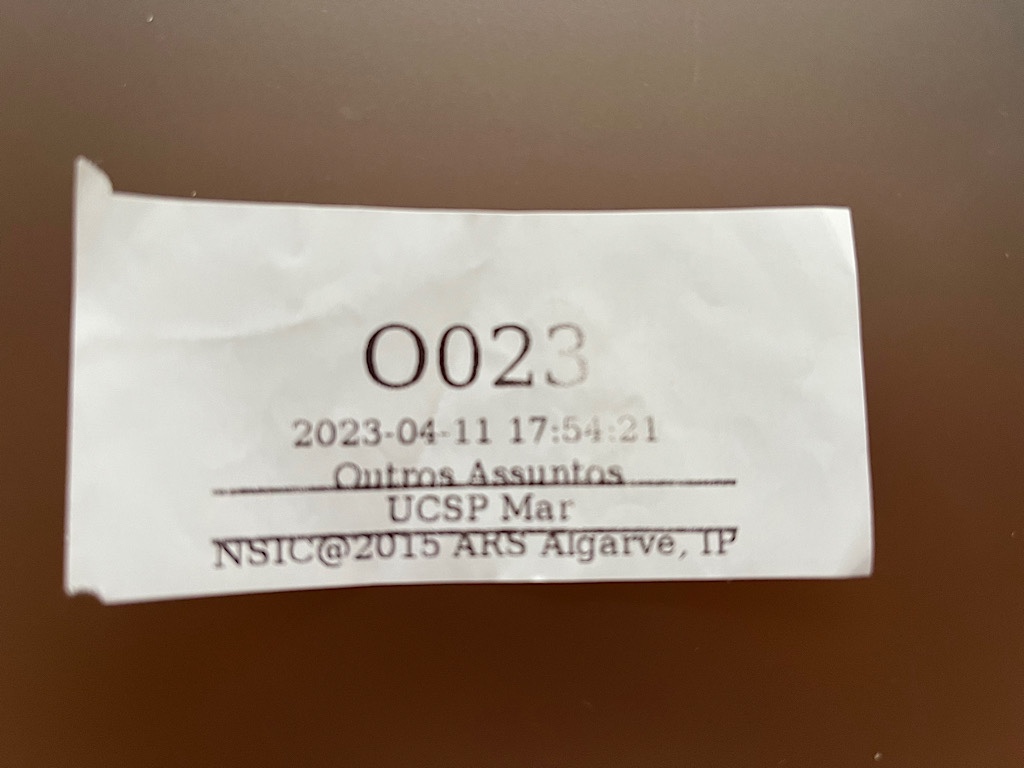
Strictly-speaking, I’m not supposed to register for an NHS number until I get my resident’s card, but I showed my NIF, proof of address and D7 visa complete with interview date and that seemed to be enough.
I also had an S1 form with me. This is issued to UK pensioners living in Portugal and entitles you to free healthcare. It’s not a strict requirement as you can register for NHS in any case once you’re an official resident. But it seemed worth having as it’s free.
I also used it at my initial D7 interview in Manchester to show my healthcare needs were covered. All the info on the S1 application is here, if you scroll down.
I found the S1 easy to get… eventually. I had to phone them up for a replacement because they sent the first form to my Portuguese address a few months before I even arrived in the country. No doubt it’s kicking around a post office somewhere.
The lady at the health centre registered me and gave me an NHS number, but she told me to take my S1 to the social security office and get a social security number, then go back to the health centre so she could add it to my details. Phew, I think that’s enough for today.
Update, 2 days later: no reply from the tax authority re my request to change the address on my NIF.
I was about to go to the social security office to get my number when I found you can apply online for it here. The instructions are here. You then have to go to the local office to pick it up (allegedly).
Most of the expats I’ve met have private health insurance, and I know this is also looked on favourably at the residency interview. Most people say Allianz is the best.
I duly asked for an online simulation and was quoted over €600 per month! Other providers seem to offer schemes for just over €200 per month. It was all too confusing – and expensive. I decided to hit the British Immigrants in Portugal FaceBook group (a mine of information).
Sure enough, my question had been asked before and the overwhelming majority of answers recommended joining AFPOP (the largest association for foreign residents in Portugal) and taking advantage of their advantageous terms with Medal insurance brokers to take out a policy underwritten by… guess who…Allianz.
I’m hoping this is what people mean when they say they have an Allianz policy and that it’s a lot cheaper than the generic quote I got via the Allianz website. I joined AFPOP (€85), contacted Medal for a quote and I’m waiting for a reply…
I still have a few things pending, but I think I’ll be ok at the SEF interview. Migrant lore (at least on Facebook) says that unless you’ve turned into a serial killer since the first visa interview, it should all be plain sailing.
